The Direct School Admission (DSA) exercise has given opportunities to talented student athletes to secure places in school.
As Singapore develops, it is heartening for most to know that the definition of success is widening and that there are opportunities for those who are talented in other areas besides academics.
What’s your experience with DSA?
How has it developed in your school?
If you were a DSA student athlete, how did it change your life?
Or did your school just use the DSA exercise to secure a championship winning team but after the thrill of the final was over, the players were left to face the dread of exams?
Feel free to share your thoughts with other readers so that they can make an informed decision about whether to enter a secondary school or a junior college based on the DSA exercise.

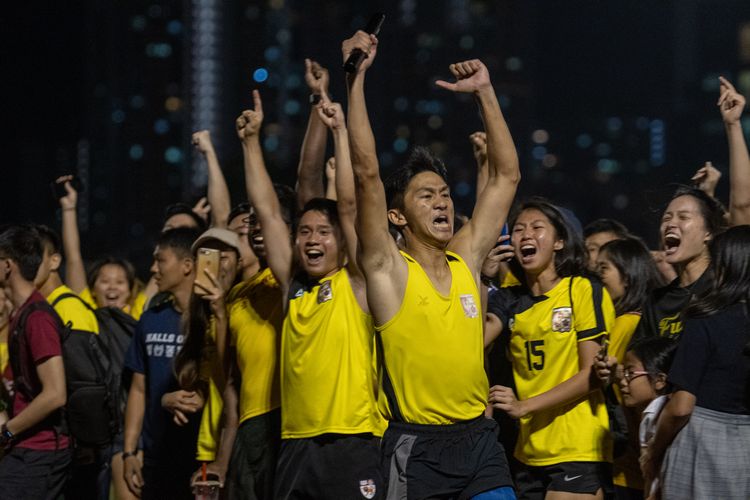
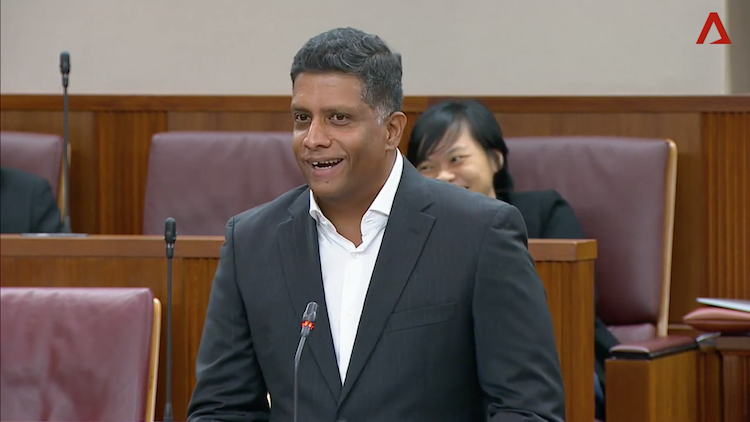
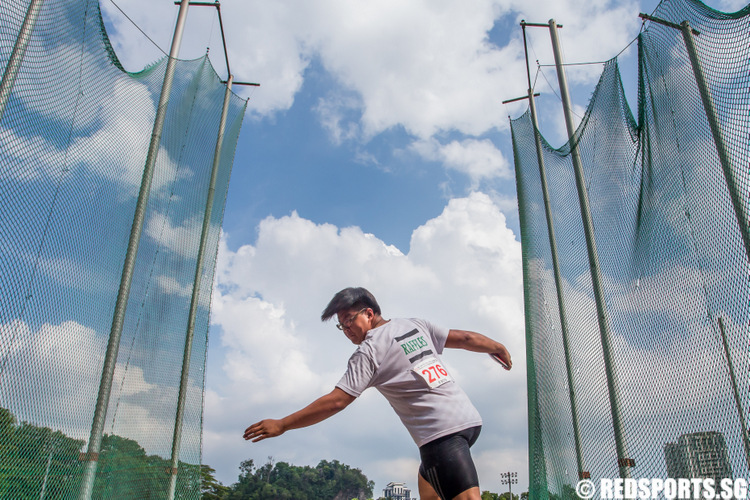
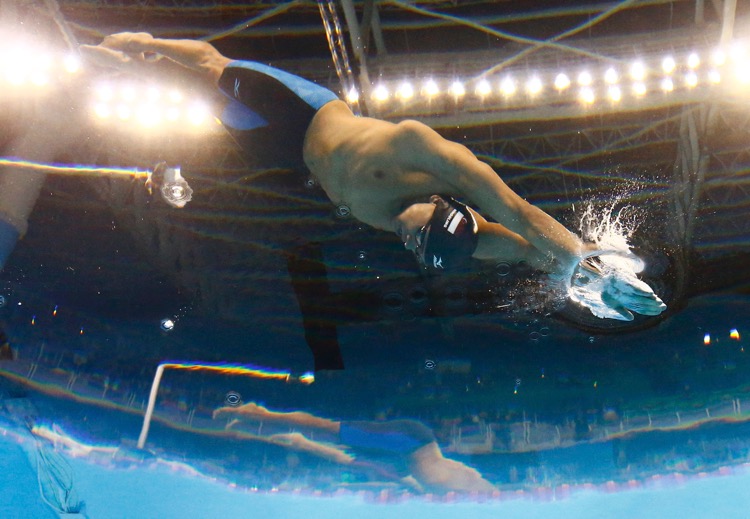

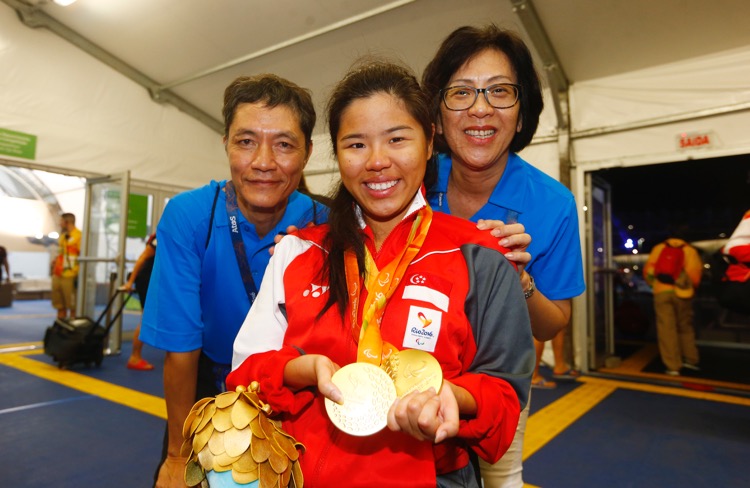
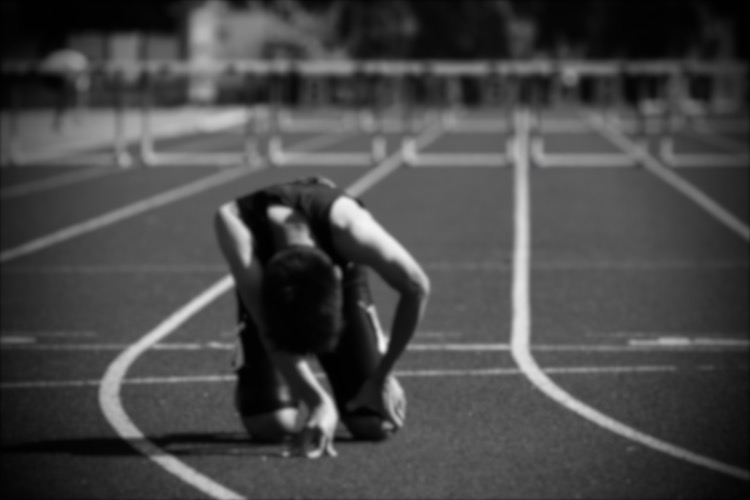
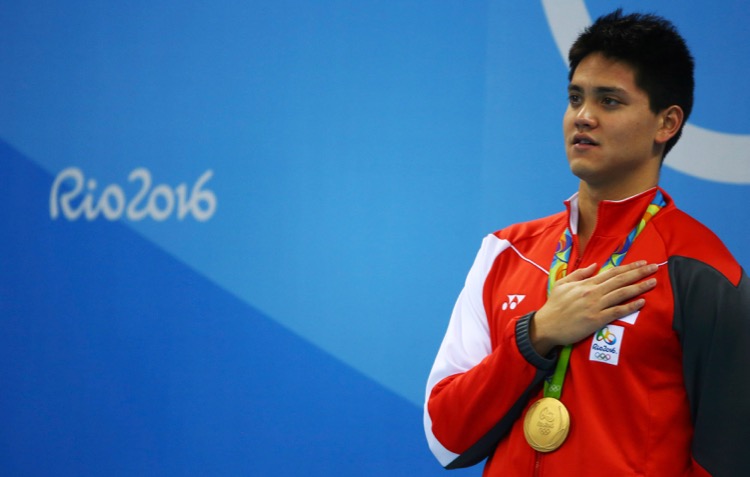

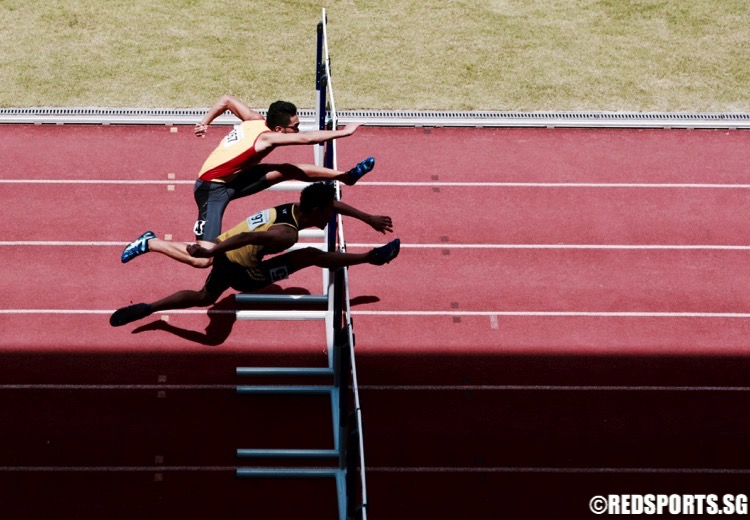
some of the schools that are in DSA are really biased towards a certain group of people.
example-basketball
-lousiest player from anglican high(national top 4)
-the number 1 player from kent ridge(1st round)
-trial result(kent ridge player is a betetr invidual)
-final result(anglican high player chosen)
-reason
-win more accolades in basketball
the way some school chose the students based on DSA are really unfair as i myself have experienced but i shant say which school.i will never ruin their reputation.it is a junior college by the way.this junior college have a DSA trial and guess whose the judge?the senior members!!!instead of the coaches….what the hell is this???as the senior players come from their secondary schools,they choose plaeyrs from their school even though they didnt shine.if that is the way school do DSAs what for organise it in the 1st place?this is utterly disgusting.no offense.they should give evryone a fair chance not based on number of accolades or whatsoever or wheter u know this/that person better.
Interesting. Sports scholarships – those that I’ve come across while I was a student are awarded to students who have already been accepted into the University based on academic merit and are looking for fee reimbursement schemes such as a scholarship.
As far as I’m aware, too, other than SMU, SIM who had on a couple of occassions taken in students based on their sports achievements – international level, not just school – admission to NUS and NTU is based on academic merit. It is nothing like DSA if you ask me.
No system in this world is ‘perfect’ – but we need to have an honest assessment about the intention of the system and consider if the benefits outweigh the disadvantages? I think you’ve mentioned a lot about the rhetorics and I think what we are interested to hear is the reality of the situation hence the purpose of this post – whether students and CCAs are REALLY reaping the so said benefits?
Its the voices of our kids that will stand for something in this controversy, not the stakeholders. I can only express from an educator’s pov that there are too many idealistic initiatives imposed from the top that is in reality not feasible to execute.
Which is why I’d like to hear specific school examples – exactly, why I mentioned Anglican because AHS is the only school I know that has a deliberate initiatve to go the extra mile for their student athletes, which is helpful for all student athletes, DSA or not.
Is DSA an accurate measurement of athletic potential? From what I’ve seen, I’m doubtful. Its quite easy to qualify for DSA so long you were part of a winning team, which is why you hear students commenting on how the DSA students are not necessarily that good.
And with your gripe towards school sports being geared towards winning – DSA is going to be at its service, just watch. I was never exposed to competitive sports until I was 14 because my Sec School gave me a fair chance to discover my athletic potential.
I encountered the idea of “DSA” at JC, I think it killed what I had thought school sports was about – passion. What I saw was only ugly intense competition to get into the first team and winning-obsessed coaches. To me, school sports lost its meaning altogether.
Not wanting it to be a regret in my life, I left that JC in disgust and headed to Australia — what a blessing in disguise because in that sporting nation, my passion for (school) sports was rekindled. That’s my “DSA” story, I’m sure there are plenty out there. : )
Hi Jan, good points- I would like to counter them with some points of my own.
The DSA system is not a perfect system, there are ways to improve it, and with the flexiblity DSA schools have some have moulded their programs in holistic ones, while others are still trying to find that right mix.
Students are judged based on athletic POTENTIAL – this is espcially the case at secondary school level, to give those more gifted at sports a chance to go into a program which aids them in being well rounded.They might need more help in studies, to give them an alternative way of studying rather than the norm. Sports people have different learning styles as does everyone else.
Even if a student(again at secondary school level) is admitted through the DSA it does not mean he/she automatically qualifies to be in the 1st team over someone who has qualified accademically. As you have pointed out Jan, its about balance – so if someone can get in through his studies is good enough to play, as a coach I would be silly to chose someone who is not as good but is a DSA student.
Having been working with coaches and student athletes for close to 15 years, I can attest that the coach and the teachers in charge in the long run do not chose who plays dependent on weather he/she got admitted anot. At the end of the day, its the skill and attitude that matters.
Being admitted into the DSA program does not mean that only these students benefit. Schools that have a DSA program for that particular sport ensure that the whole CCA is moulded to educate all who are in the CCA , and not a select few – sports science, coaching and academics are all part of the program – this comes first hand by the way.
I would like to point out that once a student comes to the school and becomes a student athlete, there is no difference how once comes in. Just because a student who gets into a school on 260 points and not on DSA does not guarentee that he/she will not fall behind. A school that has a DSA will ensure that it has a program that helps every student in that particular sport- as Jan has pointed out that Anglican high had a sports class – I am sure that it was for all its athletes, and not only those that got in on DSAs!
Do a check and you will find out that not all DSA students make the cut into the team based purely on their admission.
What is the difference between DSAs and University sports scholarships? Unis and polys all have some programs which admit sportsmen based on their sporting excellence and have support systems to ensure they have a holistic education. So again I ask – is there a difference?
@Marvin,
Before DSA became official, there was an unsaid quota of how many “DSA” students (aka “appeal students”) a school could take in, each school has its own quota. Glad your brother chose RJC because the mugging environment would inevitably urge a student to work hard!
Though I do know of RJC “appeal students” who retained or dropped out. But my then-boyfriend was a perfect product of “DSA” – scoring straight ‘A’s and tried ‘S’ paper alongside captaining his RJ team to gold! Though I had to encourage him a lot towards the exam! haha.
In the past, we still have to do as well as we can for our ‘O’ levels to then take a stab at appealing to the top JCs… I suppose MOE’s (good) intention with DSA is to help athletes “guarantee” a place in school but I feel thats too much sheltering/babysitting?!
I’ve qualified by saying “unless a student is a late-bloomer or just slipped in a major exam”, so I suppose the purpose of this thread is concern with kids who do not fall into either of these categories because we are concern that schools may treat kids as commodities and not “keep their end of the bargain” in PK’s words.
If schools simply leave it to the teachers to do something about the weaker DSA students then I can say that many teachers would not do much and you can’t blame them entirely as our current secondary school set-up of 1:40 teacher-student ratio is already problematic!
So in rhetoric, the idea is “students who go in through DSA usually come out better both on and off the field of play” (as PK has rightly pointed out) but what we see in reality, does it really promote that balance or has it validate “success” = “end result”?
Can I stress, in both education and in school sports, it isn’t about the end result! It is respectively about the learning process and the participation experience. DSA appears to shift further away from what is truly important, especially in life, balance is key!
Its not so much about not recognising a child’s talent in sport than it is about having a sustainable system that pursues a balance. Why don’t we promote holistic education instead of promoting one against the other and risk school sports becoming all about winning?
In my household, we didn’t let my little brother DSA into an elite school because we wanted him to learn to balance studies with sports and get into the school on academic merit – which he did. But when he got into the school, he was told though he was as good as the DSA players, but they get priority to play cos that’s their purpose so the school team is “full” and he can’t represent the school this year?!
As with the poll’s result, my concern with DSA is two-fold:
1. What does it show when “DSA” jeopardize the playing rights of a child quite as competent in the sport, just because he didn’t choose to use DSA to get into the school and got in on academic merit instead? And has it made school sports too much about winning? It just feels like we are promoting elitism in sports.
2. How exactly do secondary schools provide academic support for their weaker DSA students? For a kid who gets in with 200 points vs one who gets in at the school’s cut-off of 250, I hope there is a consistent program across all schools to spur their weaker kids on. (Eg. Anglican High used to have a Sports Class which was great.)
well basically i skimmed through everyone’s comments, and the only comment that caught my eye was jan’s one so i shall just respond to it.
i think you guys look down upon DSA kids. why not just accept they are good in a certain aspect of their life, like how a student might be good in science but bad in chinese? and it’s not like because they did poorly in their PSLE, THEREFORE they cant catch up. it’s not a fool-proof co-relation. it is true that while quite a handful of the DSA students do not cope as well with the studies as the rest, most still do put in the effort into their schoolwork. some even supersede their peers (who scored higher at first to get into their school of choice by aggregate) because they do care about their studies and work even harder than their peers who might have “had it easy”.
DSA kids are capable of studying and doing as well in their studies, that is something to take note of.
This is a funny old question that never seems to be answered, in Singapore at the very least!
DSAs, in the traditional view give young athletes in their chosen field of sports the opportunity to go into a program that recognizes their talents on the field, and have programs off the field that are tailor made in areas such as sports science and accademic learning to assist them on and off the field.
Getting the students in based on sporting potential is one thing, but am very sure that all schools that offer DSAs have accademic programs in place not only to ensure that the ‘bottom line’ of O/A level passes are met, but to aid them just as would a coach do on the field of play.
The point here is not the have them in the school merely for the medal count. We as Singaporeans have to start recognizing that while accademics are important, lessons are not confined to the classroom.
DSAs offer students who have talents outside the classroom and for whatever reason may not have exceled in the revelant exams. Schools offering DSAs recognize the fact that these student athletes need the guidance off the field to balance out their accademics and the students who go in through DSA usually come out better both on and off the field of play.
In that vein I would like to counter Jan on her comment that schools would rather retain their DSA students than affect their bottom line. As an educator as she has stated (and also someone who clearly likes sports) one would think that such a situaition would be a failure on the school’s part to keep their end of the bargain in equipping these student athletes for life outside the classroom.
What frustrates me is that for the passion school sport brings, many still have yet to phantom that school sports is more than finals, more than the medals, more than bragging rights and more than just being able to score As and win medals. Its a learning exprience, as past redsport interviewees Dr Ben Tan and Teo Ser Luck have outlined. Being involved in school sports is a unique exprience, and we need to have more schools have DSA programs that allow student athletes a pathway alternative to the sports school, seeing that some sports are not under the sports school umbrella.
Education for athletes need to be holistic – and with the sports industry growing, there are many avenues for student athletes of the future to persue – it may not be as national competitors but there are other ways to be involved.
no offense to vinny or your brother but 2As and 1Bs would be considered below average in RJC. I remembered in 2007 90% of the cohort scored 3 As and above.
Grades wise, I am sure that any other school would be able to help your brother achieve that grades. A 13-pointer in O levels is expected to get such grades in A-level according to MOE’s expectations so that is considered as having no value-added whatsoever. Besides, there are tons of students from other JCs getting that grades too.
way before the DSA option came about, schools were free to poach as many students as they can. Athletes who scored below 20pts could be automatically accepted into these top jcs. The DSA scheme puts a limit to how many students a school can recruit.
My brother was given such an opportunity to get into the raffles. We had our doubts and we were worried if he could cope with. He did decent for his O’s you see, abt 13points, and he could have gone to any other JCs still.
There were several other JCs that offered, AC/HC etc…In the end he chose raffles because he felt it was the school that could give him the academic support he needed. Basically, it was down to the balanced school life they could offer.
At the end of the day, he not only excelled in his cca, but aced his exams, 2As and a B. He was not the only “DSA” student that did well, several of his batch mates also did well.
What I noticed was not only the support he received from teachers and classmates but a change in his attitude as well. He showed a greater focus in his studies. Was there stress? Definitely, but you must learn how to cope with it. He learnt how to cope with stress both in the classroom and out in the field. What i saw was that top schools do provide excellent support for their student athletes and they do not “exploit” them.
Unless a student is a late-bloomer or just slipped in a major exam ie. PSLE/’O’s, otherwise from an educator’s point of view, this concept of DSA doesn’t make sense, a gap between reality & rhetoric.
Schools will need to provide special academic attention to assist these DSA students in coping with their studies, otherwise how are they “automatically” going to catch up with the rest of their peers?
Because schools will never risk them to affect the school’s overall ‘O’/’A’ levels performance – so the only way is to keep retaining them until the risk is minimised or wait for them to drop out.
Is the society ready to widen the definition of success? Otherwise with the real world still defining success by academic performance, then this DSA seems nothing more than a false sense of security.
PS. I think Jena’s suggestion of allowing students to “gain an extra advantage by looking at their achievements in sports or other areas” will encourage holistic youth development, interesting : )
@Jena
I suppose that’s what DSA is all about – giving those who are good at CCAs a leg up to compete against those are just banking on academics to get in?
Is it stressful for those who secure a place via DSA in the academically stronger schools?
@anon
How is it that DSA students are useless? Weren’t they admitted based on their sports skill? How did they end up failing to make the first team?
i agree with anon
Ok because i feel dat one shld get in based on their academic abilities. Ok,maybe they can gain an extra aadvantage by looking at their achievements in sports or other areas,but i feel Dsa shoould not be based ENTIRELY on non academic areas.One should be fair and compete with others.Also ,those who secured a place by DSA who have entered into prestigious schools may not be able to cope with the stress
all in all, they do contribute to healthy competition in their respective sports. yet, considering that their places are especially meant for those who’re good in their ccas, it is kinda unfair when those spots are given to those who can easily get into a school through their results. in using dsa as a safety net, they tend to deprive other students of a place in a school they can only enter through dsa.
DSAs are useless, some dsas don’t even make the team or first team in the sport that they play. they don’t even deserve to be in that school in terms of merit in the sport